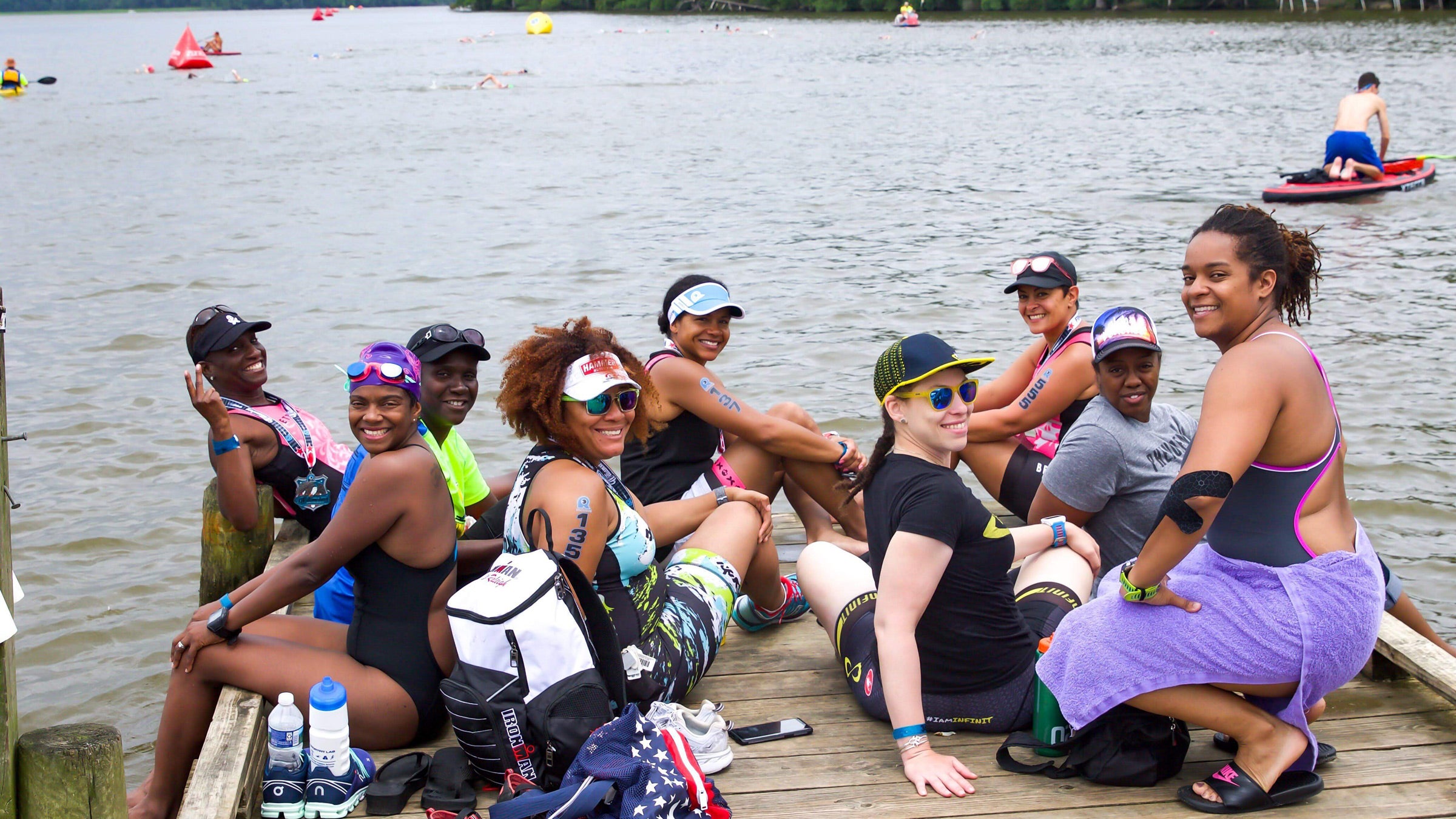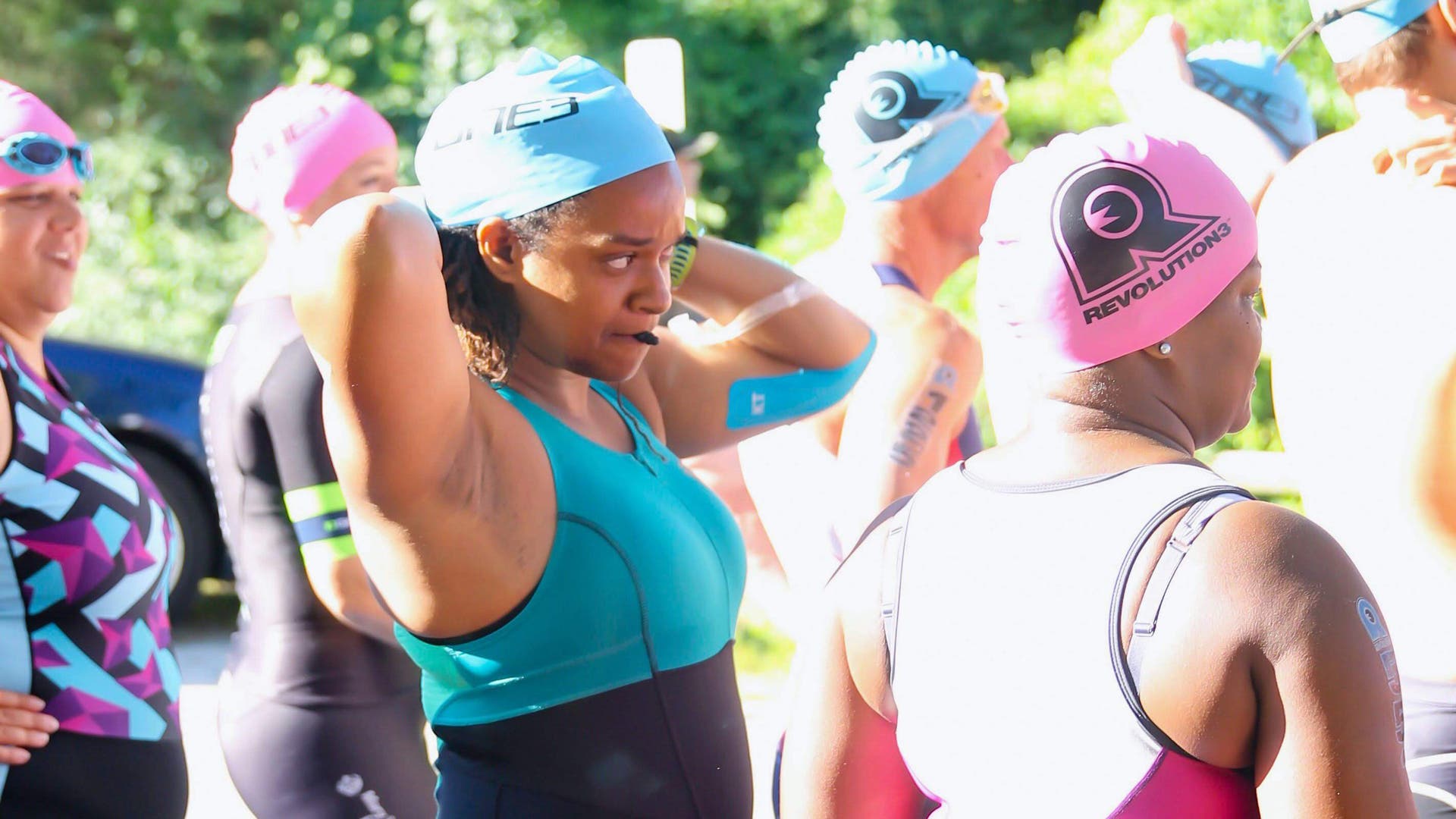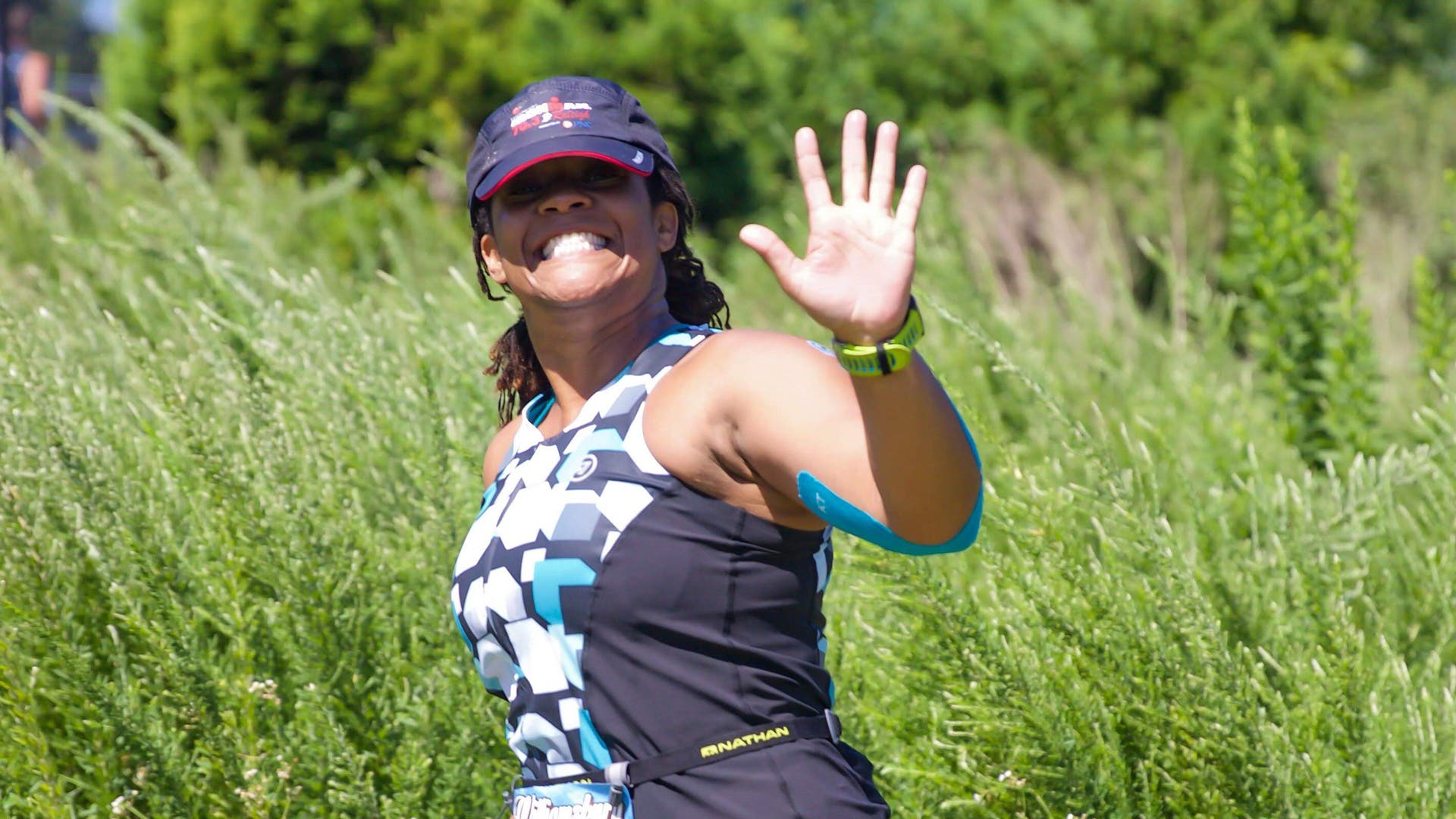#MyTri: Finding Camaraderie As A Black Triathlete

We’re bringing back #MyTri—where we’ll be letting triathletes tell their stories in their own words. To submit your triathlon story email letters@triathlete.com with “My Tri” in the subject line.
The effects of the most recent racially motivated events in our country have filtered into the triathlon community. As this started happening, I was proud of the many people and companies who took a stand to remind the triathlon world of the importance of equality, especially for those who are Black. The success of this race year would have marked the completion of just about all the goals I had set out to accomplish as a Black Athena triathlete. I have participated in every distance from super sprint to a full Ironman; I’ve won 1st in age-group and Athena divisions; and, this year, qualified to be on Team USA for the aquabike. However, the world changed, our nation is changing, and so is the sport.
When I first started in triathlon 11 years ago, it was because I’d had my third child and gotten bored of just running. To this day, my husband jokingly says I train and race to get time away from the family. Real talk: he might be right. But at that time, I felt like I needed more of a challenge and upon joining the group Sisters Tri-ing, I got that challenge. I must admit, I started in the group just for strength and running, because I was scared to do an official race after my experimental ‘indoor tri’ earlier that year. I grew up swimming recreationally and knew how to ride a bike. I thought that an indoor triathlon would be easy. I was wrong.
Sisters Tri-ing was composed of women who identified as Black, Hispanic, Philipino, and White. I loved this group because we could be ourselves. I never felt out of place. Being a part of this group meant talking openly about those things which directly impacted us. This meant working out and sweating together. It was our team building. I was a brand-new triathlete and got to meet my first Ironman, Carla Thompson. Not my first Black Ironman; my first Ironman, period. That was impactful for me and I was completely amazed by her. When the group raced, we were together. I was never alone. That meant so much to me and I did not take it for granted.
In my 6th year of racing, we moved from Colorado to North Carolina and I could not find an in-person group like Sisters Tri-ing. However, I found the Facebook group, Black Triathletes Association (BTA), and met some incredible triathletes. The social media introductions led to meeting in-person at some races. However, it was at the races I attended alone that I fully understood the importance of having a “tribe.” Being alone was intimidating. I was not a novice, so the intimidation did not come from the unknown of navigating the disciplines at a race. I did not know anyone—and I stood out. In later conversations, I learned that other Black women shared similar experiences of being ignored, tokened, or gawked at while attending races alone. The idea of increasing exposure of the sport to minority populations had been an ongoing goal longer than I had been racing. So, when I reached out to national organizations to help create space for other Black athletes and got the auto-reply, ‘Thank you for your email. We are looking into how we can create more space for other triathletes as we want to be inclusive,” I should not have been surprised those words were not backed up with action. I learned from other Black women they too had received a similar auto-response.

So, when it came time to do my dissertation, I figured out a way to get those stories out: research the motivations for mid-life to older Black women (36 to 60 years old) who participate in triathlons. There are similar extrinsic and intrinsic reasons why we all choose to be triathletes regardless of sex, gender, age, religion, occupation, race, or ethnicity. For example, the most well-noted reason for starting and continuing in the sport is for health. I have never met a triathlete who has not noted the improvement or maintenance of their physical, mental, or spiritual health as part of why they participate in the sport. For the Black women triathletes in my study, however, there were culturally influenced themes that set them apart, including the health extrinsic motivations like body composition and physical attractiveness and the intrinsic motivation of affiliation and camaraderie.
Being a Black woman has always meant being compared to the majority. In a physician’s office, this comparison most often occurs after a calculation of your body mass index (BMI). But what Black women were never told is that the BMI scale was not developed for them. It was developed for White men, back in the 1800s, and did not allow for the relative proportions of bone, muscle, and fat in the body. Considering Black women have higher bone strength, slower loss of bone during adulthood, and greater ability to replace lost bone due to better bone formation, measuring BMI seems less significant.
The women I studied for my dissertation talked about their health transformations in terms of body composition and physical attractiveness not needing to be defined by society’s standards. Participants tended to focus on improving body composition, with the term “weight regulation” as a motivator to describe the desire to fit into certain clothes and look better in the mirror. Although losing weight was an expectation, it was not a guarantee. That means an alteration of their cognitive framing about weight regulation during training moved from the desire to lose weight to a focus on being lean. Being lean meant developing a more muscular build while accepting that the personal body type is not as slender as the commonly recognized triathlete. The theme of physical attractiveness changed over one’s lifetime and was often described in lieu of transitions in the aging process. In tandem with an understanding of weight regulation, one participant (a former dancer) described how her view of being physically attractive changed over the years. “When I was in my teens and 20s, physically attractive was being as thin as possible. I hated being as muscular, I hated my thighs because they were so muscular. I just was like…I’m too heavy. Now, I love seeing myself. I love looking in the mirror and flexing my arm… I love looking down at my calves, because for me, that’s power…that’s attractive to me.”

Another theme, camaraderie, was related to affiliation. Affiliation is described as having commonality and the desire for social connection with whom one identifies. For many of these women, the commonality of being a triathlete was not enough because being a Black woman triathlete included multiple layers that most triathletes could not identify with. There was an inherent desire to share more than just a similar background of the sport. One woman expressed that when she went to races alone, she felt like Moses in the desert. She would show up to races only to have people ask, ‘Are you a volunteer?’ when she was wearing a tri kit. A question like that would not be asked, she said, “If there are 30 Black people walking up there talking about, ‘Let’s get to the swim start.’ So, there is power in unification and community and strength in numbers.” As athletes identified with the barriers they faced to participating it also served as a catalyst for camaraderie. Learning how to swim, maintaining proper hair care, rearranging finances, and explaining the sport to misinformed friends and family were examples of cultural barriers that were overcome because they either saw or spoke with other Black women triathletes.
I know, personally, having the numbers is so important, as I have made new friends through groups like BTA and the all-women’s group, Fast Chix. Seeing women that look like me and race beautifully is inspiring. In 2018, I was the last person from our group to finish my first Ironman, in Arizona. Prior to the race, everyone told me that when my name is called at the finish, I will feel something I never felt before—and they were right. That moment was important for me, but not because my name was called over the loudspeaker (because it was not, LOL). It was looking to the right, as I shuffled down the red carpet, and seeing all the Black men and women who raced and finished before me and those who supported us on that day calling out my name. My tears of joy then, and even now as I write this, was because they were there.
We have seen a shift, in the last couple years by companies who actively reach out to minority communities in hopes of expanding the sport. The weak excuse “looking into how we can create more space for other triathletes as we want to be inclusive” is no longer acceptable. These past couple months have been interesting as we all have navigated needing to train but not necessarily having the resources due to the stressors of COVID-19. People often use exercise as a form of stress release and when we do not have that it can translate into something that may either be positive or negative. I have seen and read the negative impact. Additionally, I have seen companies make statements to let me know that I am connected to culturally positive spaces. Not everyone gets my attention (or my money), because I know my worth.
My entry into triathlon began with a culturally diverse supportive base and that is something I cherish. My current life in triathlon is also supportive and I am proud of the diversity I have in the sport. I made a choice to find those people who want to live in a culturally diverse world of triathlon. My coach, Sara Larson, does not look like me but I love her because she has taken the time to understand my point of view as a Black Athena triathlete. The knowledge that Black women and men cannot be safe while just being themselves, whether running, sleeping, eating (all things triathletes must do) without the prospect of being shot, choked, dragged, and killed is something that I have been thinking about since I first realized (as a kid) that this is my reality for life. I have already experienced microaggressions while trying to train or race. So, when non-Black triathletes are shocked, appalled, or disheartened about the actions of other non-Black triathletes because they thought we had a shared ‘commonality’ of just being triathletes, it is just another day of the week to me. I am a Black Athena triathlete every day and these issues and thoughts never go away. Neither will I.